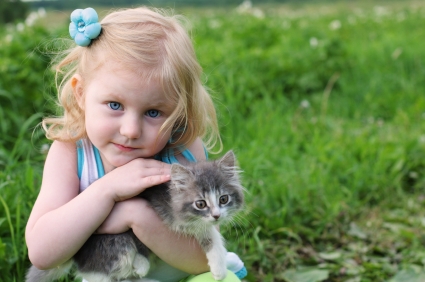
Anyone who has ever had to care for a pet will agree that owning and caring for a pet carries a huge responsibility. One should therefore be very aware of your child’s level of maturity before acquiring just any kind of pet for them.
Important considerations to keep in mind when acquiring a pet are:
- It is a huge responsibility which requires a certain level of intelligence and maturity from all parties concerned. “All parties” refer to all members of the family including domestic helpers. Caring for a pet requires everyone to “buy into” the animal being acquired, even though they may not be involved in the day to day care of the pet;
- It is an on-going responsibility which in most cases require a daily routine of care regardless of vacations, public holidays and other activities;
- The initial expense for a pet is not even a fraction of the on-going expenses required to keep and care for a pet;
- The responsibility of caring for a pet can never rest on the shoulders of a child alone. Children do not own cars nor do they have drivers licences to take a sick animal to the vet;
- Circumstances change and children grow up. Many pets have long life spans and a pet which was originally acquired as a gift for a child, will most likely end up being cared for by the parents of that child, once the child leaves home;
- The novelty of a new pet very quickly wears off and when reality sets in and the child’s attention is grabbed by the next best thing, the pet is not simply something which can be stuck in a cupboard and be forgotten;
- The type of pet acquired for a child needs to match the child’s personality as much as it needs to match their age and their ability to take care of it;
- The responsibility of caring for a pet goes beyond feeding it and cleaning its living space. Depending on the type of animal, it may also need training, socialization and emotional care;
- Many people acquire a baby animal for their child because “it is so cute” or “they can grow up together”. Problem is that expecting a young child to care for a young animal is like letting a young child care for a newborn baby. Young animals require much more care and involvement than older animals, and expecting a young inexperienced child to provide this level of care is simply looking for trouble;
- Have a backup plan ready right from the start. If the relationship between the child and the animal does not gel, you have to have a strategy and plan for dealing with it, without just simply making it someone else’s problem. An unexpected allergy may also require you to fall back onto your backup plan.
Before you decide to get your child a pet, ask the following questions and make sure you have figured out the answers well and truly, before you take the step of getting an animal or family pet:
- Why do I want to get my child a pet? If the motivation to get a pet is to offer a long term caring home to a pet, be it from a breeder, a petshop or an animal shelter, then it warrants the acquisition. If the motivation is because the adorable pet is irresistible, then the motivation is probably wrong and you should refrain from acquiring the pet.
- Are we ready for a long term commitment? If you are not ready to commit to the long term care of the animal, which in most cases will be a decade or two depending on the type of pet you will be getting, then maybe you should think twice.
- Does your family have the financial resources to care for a pet in both good and bad times? The good times refer to providing preventative veterinary health care which includes yearly vaccinations and feeding your animal the best food you can afford. It also includes spaying or neutering (surgical or chemical sterilisation of the pet at the appropriate age).The correct and proper diet forms a major part of the good health of any animal. The bad times refer to your pet falling ill and needing special care and possibly expensive veterinary treatment and/or a specialised prescription veterinary diet.
- What can my child and our family offer a pet? Is your child the correct match for the pet you have in mind, or do you need to wait a year or two until the child is older and can assume some more of the responsibilities of caring for the pet?
- Do you have the space for the particular pet you have in mind?
- Do you have the time available to attend to all the pet’s needs – for example if you decide to get a dog, is your child old enough and will you have the time to take them to attend puppy training classes, attend to grooming, and take the dog for a regular walk?
- Will your home need special modifications to deal with the pet’s needs eg. a dog or cat flap, or a modified room or a terrarium for a reptile?
- Will the pet you have in mind requires a special permit or licence to be kept and are you willing to comply with all the legislative requirements like municipal bylaws?
- Have I done enough research to pick the best pet for my child? Pet-related magazines and books, as well as the internet, offer a wealth of information, but be careful that the resources you consult are reputable and preferably peer-reviewed. Your vet remains one of the most authoritative and knowledgeable sources of information and should always be consulted when in doubt.
 Final thoughts:
Final thoughts:
- If possible avoid making the decision to acquire a pet as a gift for a child around the time of a special occasion like Christmas or a birthday. At the best of time, our judgement is clouded during these times because we love the element of surprise. The acquisition of a pet for a child should preferably never be done without discussing it with the child and preparing them emotionally and mentally for the long-term commitment required from them in turn.
- Do proper research and consult widely. If you are considering a dog or cat as a pet, make sure the breed you have in mind will be personable, affectionate and have a good nature which will match the child’s personality. A mixed breed can often make a really good pet and it will be a good idea to establish what the parents are like before you acquire such an animal. If you are considering an exotic pet, make sure the child will be comfortable with the handling, feeding and the special care such an animal requires.
- If you are introducing a young animal to your children, make sure the animal has been weaned. In the case of dogs and cats this age is around six to eight weeks of age. Teach your children to be gentle with animals especially young and very small animals.
- Be realistic and understand that even with the best intentions, the bulk of the responsibility for the care of the pet you are getting for your child, will rest on your shoulders. Your example of caring for your family’s pet will leave an indelible impression on your children, so use the opportunity to educate and raise your children to be responsible adults.
- Never leave small children alone with pets and make sure that they are supervised at all times by a responsible adult.
Pets are certainly part of the family and the human-animal bond is worth nurturing from a young age. Show your children what gentle caring love for animals look like, and they too will become responsible pet owners, giving our their pets the love they deserve, and receiving the joys only animals can provide, up to a ripe old age.
© 2018 Vetwebsites – The Code Company Trading (Pty.) Ltd.


